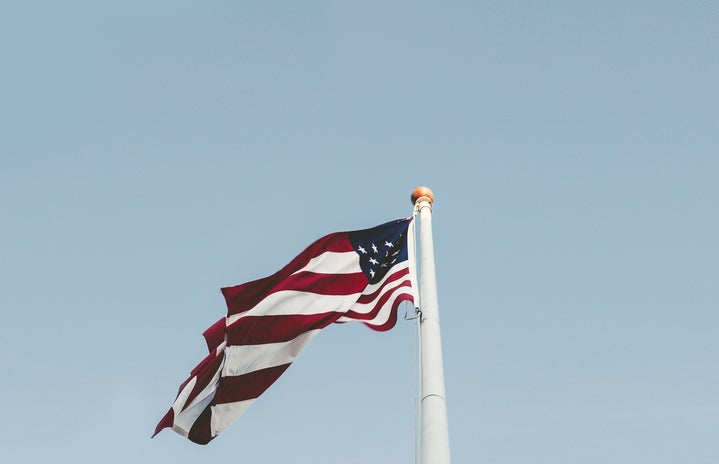Growing up in London and being mixed race meant that I was never fully exposed to racism in its raw and ugly form. I was maturing in a buzzing city filled with people just like me, and I was constantly exposed to a multitude of wonderful cultures from around the world. That all changed once I emigrated to the United States.
I have been a dual citizen of the UK and the US since I was born – my mother is first-generation American whose parents are from Haiti. My father is half English and half Scottish, and was born and raised in East London. I have been visiting the States since I was a baby, and as I grew up I thought of the US as nothing but a magical place filled with great food, great people and even greater beaches – especially on the Jersey Shore. My outlook on the United States shifted abruptly when I emigrated due to my maternal grandmother’s rapidly declining health. My parents then made the decision to move the family to New Jersey into my grandparents’ home. At first I was ecstatic – finally, a clean slate where I can meet new people and live a real American dream. I would get to attend high school in the US and even have a better opportunity to attend a beautiful university anywhere in the country. My bubble was soon burst when I was met with what separated me from many of my peers – race. What made me different is something that had stayed with me from the moment I walked the halls of my high school to the second that a white woman demanded that I step away from her just months ago.
Whenever I visit my boyfriend who resides in Jersey City, we both enjoy visiting animals that are either for sale or up for adoption. Back in March, we entered the same pet shop we love to visit, especially since they routinely bring in kittens and cats who need homes. Both of our faces were lit up with excitement – we adore animals and hope to adopt our own cat or dog one day. There was a woman in front of me who worked for the local animal shelter and was giving a small family some information about adoption. I was standing as far from her as the family was – a polite and respectable social distance that was not only due to the spread of the novel COVID-19 disease, but because she was a stranger. As I peered at the kittens she blocked the view of, her figure suddenly overshadowed mine. Her face was filled with nothing but disgust. She then proceeded to spit at me: “Could you move away from me? You know, social distancing? I don’t want to get the coronavirus.” She then motioned for me to back away.
This moment was one of those times where your brain is empty. You have no words and no emotion that would convey what you want to say to someone like that. The shop was silent. I began to awkwardly stutter: “Oh, um, I’m sorry…” and my voice trailed off. At that point, my boyfriend was fuming. I rarely see him get angry, but he was ready to give her a piece of his mind. After attempting to understand what had happened, I swiftly left the pet shop and left behind everything I wanted to say. My veins were bursting with anger and my heart was overflowing with sadness. Not only did I feel humiliated, but I realised that I had not been subjected to the worst of it. I later on found out that a coworker of my father’s began working remotely due to the sheer amount of abuse and harassment she faced on the New York City subway every single day. From then on I began to notice how twisted people became, especially since Donald Trump blamed the Chinese for bringing the virus into the United States and refusing to take responsibility for the country he claims to love and care for. Millions of minorities – especially Asians and Asian Americans – are now at the forefront of the pandemic. They are being held responsible for a crisis that is not their fault, just as immigrants are continuously held accountable for unemployment of Americans.
America is sick with a history of racism and discrimination, and there’s not a vaccine that can cure it. At a time like this, the American people need to show a whole lot more of something that they have struggled to show in the past – compassion.



